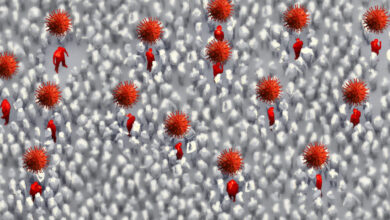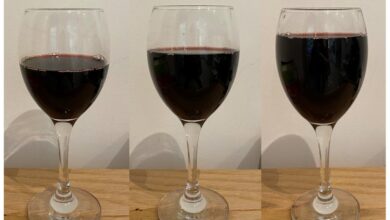Breaking The Rules Of Healthcare: Following The Science

Surgeons taking a look at magnetic resonance imaging (MRI) mind scans throughout mind surgical procedure.
getty
American medical doctors at this time are the beneficiaries of outstanding medical progress, pushed by a long time of world-leading analysis and computerized information analytics.
Thanks to those developments, physicians can avail themselves of scientifically confirmed and optimized approaches for 95% of medical issues. When adopted rigorously, these approaches give medical doctors the most effective probability at efficiently fixing a affected person’s downside. That is referred to in healthcare as evidence-based medicine.
Analysis has proven that if each doctor adopted these algorithmic, science-based protocols each time, Individuals would dwell more healthy, longer lives and expertise fewer problems from each acute and persistent illness.
But, all too usually, medical doctors dismiss the info, preferring an outdated and unreliable strategy to medical decision-making. This text, the fifth in a sequence known as “Breaking The Guidelines Of Healthcare,” explores an unwritten rule, which medical doctors have adopted for hundreds of years.
Rule 5: Medical doctors present the most effective care by following their instinct
For many of medical historical past, together with a lot of the twentieth century, medical doctors lacked the scientific knowhow wanted to stop and deal with most life-threatening ailments. Due to this, they’d little selection however to depend on their medical instincts and former experiences when offering care.
Medical doctors at this time nonetheless proudly take heed to their hearts and demand on following their guts, trusting that—regardless of the info—their instinct will produce the most effective outcomes. As a rule, that previous assumption is confirmed incorrect.
The sphere of behavioral economics proves simply how flawed human decision-making will be.
Let’s have a look at an instance from the prison justice system. Evidence-based sentencing (like evidence-based drugs) helps cut back the detrimental influence of human bias. Although EBS pointers will not be excellent, they result in decreased recidivism, elevated public security and improved rehabilitation efforts. However regardless of the info, most judges proceed to consider their particular person judgement is superior.
In distinction to what individuals in dozens of disciplines suppose, a Nobel Prize-winning psychologist and economist Daniel Kahneman discovered that experts are not immune to “the affect of extraneous irrelevant data.” The truth is, a sequence of research concerning the judicial system discovered that when judges had the liberty to comply with their “intestine,” the harshness of sentencing diversified wildly from choose to evaluate.
Not solely that, however jail sentences additionally have been swayed by illogical variables, together with the time of day and the climate. Judges handed down worse penalties for defendants proper earlier than lunch when medical doctors have been hungry (and lighter sentences after their bellies have been full). Likewise, wet days led to worse punishments than sunny days. Instinct isn’t at all times incorrect, however it’s not often a greater substitute for science.
When medical doctors overvalue instinct
Medical doctors routinely misjudge the accuracy of their instincts and the relevance of previous experiences with sufferers. These flaws in judgement result in deficiencies in scientific high quality and inconsistencies in remedy.
Take, for instance, a well-known research from the Oregon Analysis Institute as detailed in Michael Lewis’ e-book The Undoing Project.
Researchers gave radiologists 96 X-rays of abdomen ulcers and requested them to estimate the likelihood of most cancers for every. Medical doctors had no concept there we duplicate research within the pile. The outcomes, in keeping with the lead researcher, have been “typically terrifying.” Not solely did physicians contradict one another’s findings. All of them contradicted themselves a minimum of as soon as.
For additional proof of flawed instinct, take into account antibiotic prescribing. Utilizing essentially the most up-to-date analysis, computer-based algorithms can outline when and whether or not antibiotics are useful or pointless for a affected person. However quite than rigorously following the science, physicians inappropriately prescribe these drugs between 30% and 50% of the time, placing sufferers liable to a life-threatening drug response.
The non-public preferences of medical doctors hurt surgical procedure sufferers, as nicely. Physicians usually suggest surgical procedure for decrease again ache, regardless of quite a few research that point out bodily remedy alone is equally efficient 90% of the time (and results in far fewer problems).
Total, analysis demonstrates that algorithms beat even the most effective medical doctors in practically all areas: from predicting the life-expectancy of most cancers sufferers to the size of time a affected person might want to keep within the hospital to the susceptibility of infants to sudden toddler demise syndrome, and so forth.
Breaking the rule: Medical doctors present the most effective care by following the science and listening to sufferers
In the end, medical doctors who adhere to scientifically derived pointers make higher choices than after they comply with their intestine emotions.
However this new rule doesn’t imply that each affected person ought to obtain the very same medical care. Relatively, it means variation in medical apply ought to mirror variations within the preferences of sufferers, not variations between medical doctors.
To apply the “artwork of medication” successfully within the twenty first century, medical doctors might want to take heed to the values, fears and hopes of their sufferers—way more than they did previously.
Listed below are two circumstances when physicians should apply the artwork of listening:
When two approaches can’t be in contrast as a result of the dangers are too completely different
Deciding how a lot insulin to prescribe a affected person with diabetes comes with main dangers. There are dangers to being too aggressive and overly cautious.
On the one hand, overshooting may result in hypoglycemia. This would possibly trigger an individual with diabetes to move out and crash—a deadly threat when using a motorbike or driving a automotive. Alternatively, looser administration results in excessively excessive blood-sugar ranges, which may hurt an individual’s blood vessels and organs. This will increase the chances an individual will die early of coronary heart illness—or endure kidney failure or require amputation.
On this scenario, there is no such thing as a “appropriate” reply. No scientific algorithm is able to deciding which is worse for a affected person: a small probability of dying within the close to future or a excessive likelihood of dying from illness problems down the street. Physicians can’t make that selection for sufferers, both. As an alternative, they should have an in-depth dialog and discover out what issues most to the person.
When sufferers and households are fighting end-of-life selections
Latest advances in drugs give medical doctors the flexibility to increase a affected person’s life nearly indefinitely. However at what level is it higher to finish a painful and futile intervention quite than take an opportunity on a small however extremely unlikely probability at a remedy?
What if the likelihood for a remedy is 5%, 1% or one in 1 million? Does it matter if the particular person is 20 years previous or 90? What if their youngster or grandchild goes to be married subsequent month and all that issues is making it to the marriage?
Individuals’s lives and private preferences are crammed with infinite permutations, which regularly render algorithms ineffective and doctor preferences irrelevant. In these conditions, the artwork of listening proves important.
Methods to apply the artwork of listening
Most medical doctors at this time don’t have the time to have interaction in prolonged dialogues about their sufferers’ hopes, fears and values.
However with the assistance of computer-derived algorithms, teams of clinicians (together with pharmacists and nurses) can do what solely medical doctors may previously. By counting on a crew of healthcare professionals to unravel simple issues, medical doctors can unencumber time to have tough conversations with their sufferers.
Research present that if all physicians strictly adopted computer-based algorithms, deaths from coronary heart assaults, strokes and most cancers would diminish enormously. For this to turn into the norm, medical doctors should break the rule of the previous and comply with evidence-based approaches rigorously. And when there is no such thing as a single finest reply, physicians should worth the individuality of their sufferers.




